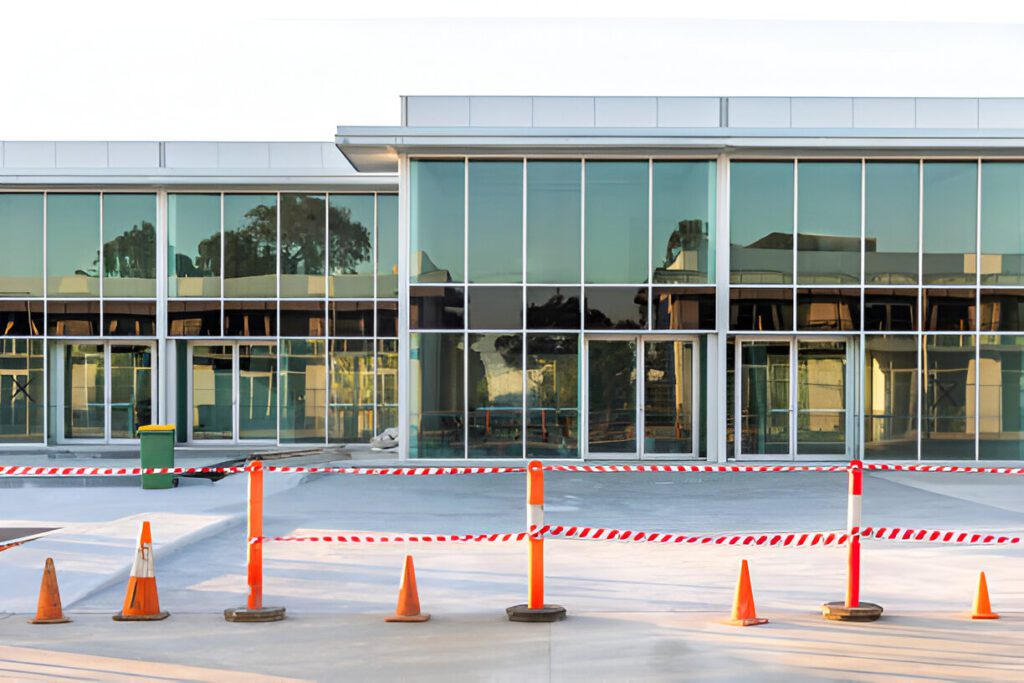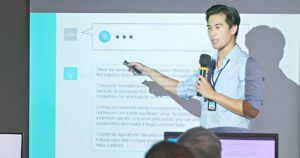This article reveals everything you should know about Nigerian education reform, secrets, the ones the News are not permitted to say and the publicly announced ones. So ensure to read the article to the end to get the full detail. You can also use the table of contents to skip ahead to the one that best interests you.
Introduction to Nigerian Education Reform
Nigerian education has faced a multitude of challenges that necessitate reform, ranging from outdated curricula to inadequate infrastructure. These issues have impacted the quality of education provided, making reform a national priority. A comprehensive overhaul is needed to ensure Nigeria can compete on a global scale, foster critical thinking in students, and close educational access gaps.
The goal of these reforms is to transform the education system into one that is inclusive, dynamic, and responsive to the needs of the 21st century.
Historical Evolution of Education in Nigeria

Education in Nigeria has its roots in the colonial era when missionary schools were first established. The system was designed primarily to serve colonial interests and provide basic literacy. Post-independence reforms in the 1960s and 1970s aimed to Africanize education and make it more accessible to the broader population. However, as the years went by, the system became burdened by poor funding, corruption, and inadequate teacher training, prompting calls for reform.
Subsequent reforms focused on expanding access, particularly through the introduction of the Universal Primary Education (UPE) scheme in the 1970s and later the Universal Basic Education (UBE) program.
Key Issues Driving the Need for Nigerian Education Reform
Several key issues have driven the urgent need for reform in Nigerian education:
- Infrastructure: Many Nigerian schools lack basic infrastructure like classrooms, libraries, and sanitation facilities. This hampers effective learning.
- Teacher Shortage and Training: Nigeria faces a significant shortage of qualified teachers, and existing teachers often lack proper training and development opportunities.
- Overcrowded Classrooms: In many public schools, especially in urban areas, classrooms are severely overcrowded, making it difficult for students to receive personalized attention.
- Inequality: There is a large disparity in educational access and quality between urban and rural areas, as well as between northern and southern Nigeria, with the northern region lagging behind.
Government Policies and Reform Efforts
Several government policies have been introduced to address the educational challenges in Nigeria. The National Policy on Education (NPE) provides the framework for the country’s educational development, outlining objectives for primary, secondary, and tertiary education.
The Universal Basic Education (UBE) program, introduced in 1999, was designed to ensure that every Nigerian child receives free and compulsory education up to Junior Secondary School (JSS3). Other government efforts include the Education Trust Fund (ETF) to improve funding, and initiatives aimed at strengthening the use of technology in schools.
Curriculum Overhaul and Modernization in Nigerian Education Reform
Nigeria’s outdated curriculum, which focuses heavily on rote memorization, has come under scrutiny. There is growing recognition of the need to shift toward a more modern curriculum that emphasizes critical thinking, problem-solving, and digital literacy.
New reforms are focusing on integrating technology into the curriculum and updating it to include subjects like coding, entrepreneurship, and STEM (Science, Technology, Engineering, and Mathematics) education. These reforms aim to better prepare students for the evolving demands of the global workforce.
Teacher Education and Professional Development
Teachers are the cornerstone of any successful education system. In Nigeria, teacher education and professional development require significant reform. Many teachers are underpaid, poorly trained, and overworked, which affects the quality of education. Reforms focus on improving teacher education programs to ensure that new teachers are well-prepared for the classroom.
Additionally, there is a push for continuous professional development opportunities, ensuring that teachers can stay updated on new teaching methods and technologies.
Funding and Investment in Education Towards Nigerian Education Reform
Funding remains one of the biggest challenges in Nigerian education. Although the Nigerian government allocates a portion of its budget to education, the amount falls far short of UNESCO’s recommended benchmark of 15-20% of national spending.
Reforms aim to increase education funding and encourage private sector investment in the sector. International organizations like the World Bank and UNICEF have also provided financial and technical assistance to improve the quality of education in Nigeria.
Addressing Regional and Gender Disparities in Education as one of Nigerian Education Reform
Education inequality is a significant challenge in Nigeria, particularly between the northern and southern regions. The northern part of the country, due to cultural, religious, and socio-political factors, lags in educational attainment, especially for girls.
Efforts are being made to address these disparities by providing incentives for parents to send their children, particularly girls, to school. Programs like the Girl Education Project aim to reduce gender inequality, while specialized initiatives target conflict zones and underserved areas in northern Nigeria.
Technical and Vocational Education and Training (TVET) Reform
With high unemployment rates among young Nigerians, there has been a push toward expanding Technical and Vocational Education and Training (TVET). TVET reforms aim to equip young people with the skills they need to enter the workforce and contribute to the country’s economy.
Government initiatives, in collaboration with the private sector, are expanding vocational training programs across the country to help reduce unemployment and foster entrepreneurship.
Integrating Technology in Nigerian Education as Part of Nigerian Education Reform

Technology holds the key to many of the challenges facing Nigerian education. The COVID-19 pandemic highlighted the importance of digital learning, and efforts are underway to integrate EdTech into the education system.
E-learning platforms, mobile apps, and digital classrooms are becoming more prevalent, particularly in urban areas. However, significant challenges remain in rural areas where internet access and digital literacy are low. Education reforms are focusing on expanding access to digital tools and bridging the technology gap.
Higher Education Reform
Nigeria’s higher education system faces numerous challenges, including overcrowding, underfunding, and brain drain. Universities struggle with limited resources and outdated research facilities, which affect their ability to produce top-tier graduates. Reforms aim to improve the quality of teaching, research, and administration at universities and polytechnics.
Additionally, there are efforts to increase research funding, build partnerships with international institutions, and encourage Nigerian graduates to remain in the country to combat brain drain.
Promoting Inclusivity and Special Education as one of Nigerian Education Reform
Inclusive education ensures that all children, regardless of their abilities or disabilities, have access to quality education. In Nigeria, reforms are focusing on improving access to education for children with disabilities by building inclusive classrooms and providing specialized teacher training. Government initiatives are also promoting policies that mandate inclusive education, making schools more accessible to all students.
The Role of Private Sector and Civil Society in Nigerian Education Reform
The private sector and civil society play an increasingly important role in Nigerian education reform. Private schools provide alternative educational opportunities and often set higher standards than public schools. Civil society organizations, through advocacy, policy development, and grassroots initiatives, are also instrumental in pushing for reform.
Partnerships between the government and private sector, particularly in areas like technology and vocational training, are proving to be beneficial in improving education outcomes.
Early Childhood Education Reform as one of Nigerian Education Reform

Early childhood education (ECE) is critical for a child’s development, yet it remains underfunded and underdeveloped in Nigeria. Reforms are focusing on expanding access to ECE programs and improving the quality of instruction for young children. The government has recognized the importance of early learning and is working to increase community-based early childhood education centers, particularly in rural areas.
Addressing Education Corruption and Accountability
Corruption remains a significant barrier to effective education reform in Nigeria. Examination malpractice, fraud in the distribution of educational materials, and misappropriation of funds are widespread. Reforms are focusing on improving accountability mechanisms, such as stricter monitoring and evaluation of education programs, and involving anti-corruption agencies in the oversight of educational funds and programs.
Impact of Nigerian Education Reform on Economic Development
A well-educated population is essential for Nigeria’s economic growth. Education reforms that improve the quality of instruction, expand access to education, and equip students with the skills needed in the workforce are directly linked to economic development. An educated workforce is better able to drive innovation, entrepreneurship, and sustainable economic growth, making education reform crucial for Nigeria’s future.
The Role of International Agencies in Nigerian Education Reform
International agencies like the World Bank, UNICEF, UNESCO, and the Global Partnership for Education have played pivotal roles in supporting Nigerian education reform. They provide funding, technical expertise, and program support to improve education access and quality. International partnerships have been critical in areas like girls’ education, digital learning, and curriculum development.
Challenges and Barriers to Effective Education Reform
Reforming Nigeria’s education system is a complex task that faces numerous challenges, including political instability, corruption, and inadequate funding. Cultural and societal factors, particularly in northern Nigeria, have also slowed the pace of reform. Moreover, resistance to change from within the education system, especially at the administrative level, further complicates reform efforts.
Success Stories and Best Practices in Nigerian Education Reform
Despite the challenges, there have been several success stories in Nigerian education reform. For example, Lagos State has made strides in improving public education, particularly through the integration of technology in classrooms. Best practices from other African countries, such as Rwanda’s education technology initiatives, provide a model for how Nigeria can improve its education system.
Future Directions for Nigerian Education Reform
The future of Nigerian education reform depends on sustained political will, increased funding, and a commitment to innovation. Key areas for future reform include strengthening teacher education, expanding access to digital tools, and reducing disparities in education quality across regions.
The youth will play an important role in driving reform, particularly as they become more engaged in shaping the future of education in Nigeria. A long-term, sustainable reform strategy is crucial for achieving meaningful progress in Nigerian education.

